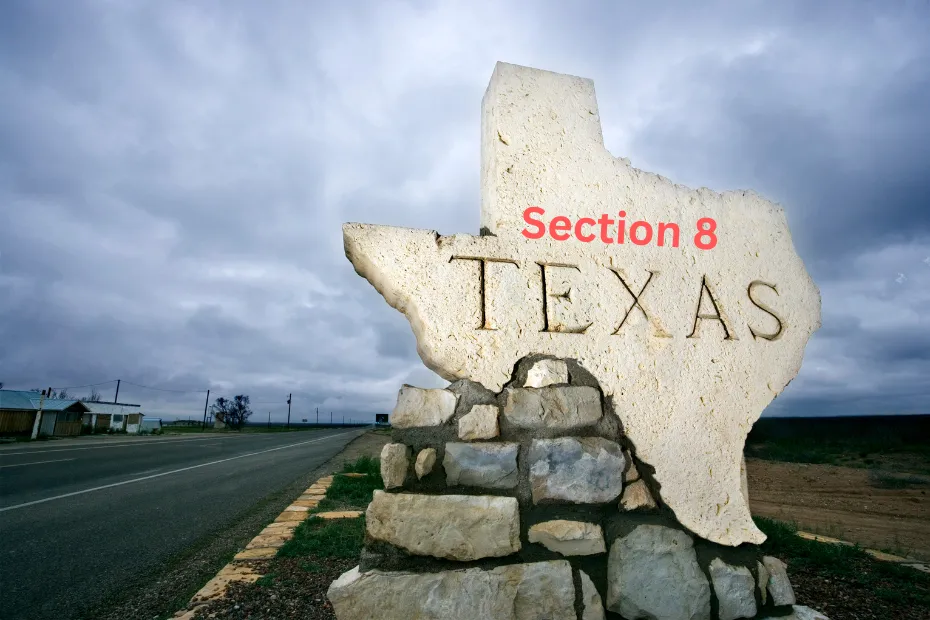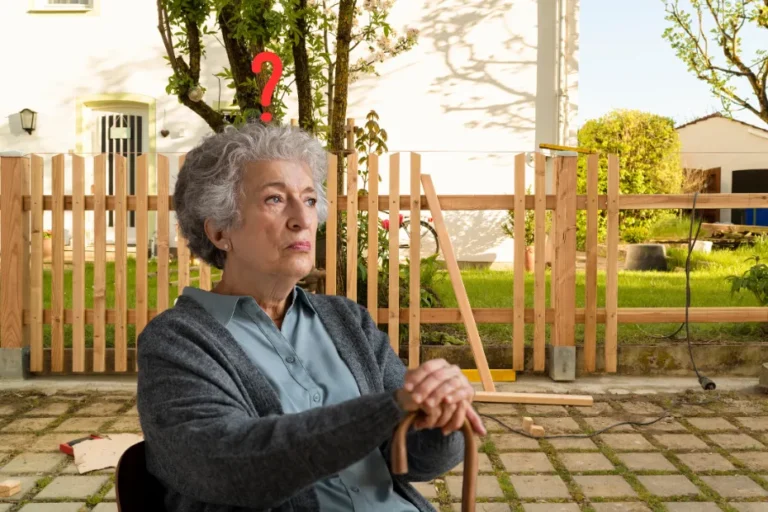Can a Landlord Refuse Section 8 in Texas? Find Out
In Texas, landlords have the right to refuse renters who receive housing vouchers, according to the Texas Tribune.

What Is Section 8 Housing Vouchers
In Texas, landlords have the right to reject tenants who receive Section 8 housing vouchers, as stated by the Texas Tribune.
This means that landlords are not obligated to accept renters who are part of the federal housing assistance program in the state of Texas.
What Is Section 8 Housing?
Section 8 housing refers to a government-funded program that provides rental assistance to low-income individuals and families. The program, formally known as the Housing Choice Voucher Program, is administered by the U.S. Department of Housing and Urban Development (HUD) and aims to ensure that eligible individuals have access to safe and affordable housing.
How Does The Section 8 Program Work?
The Section 8 program works by providing eligible renters with housing vouchers that they can use to secure rental properties in the private market. These vouchers cover a portion of the tenant’s rent, with the remaining amount paid directly by the tenant. The program allows tenants flexibility in choosing their housing, as long as the rental property meets HUD’s quality and affordability standards.
Landlords who participate in the Section 8 program benefit from guaranteed rental payments by the government, reducing the risk of missed rent payments. However, participation in the program is voluntary for landlords, and they have the right to refuse Section 8 tenants.
Rights And Protections For Section 8 Tenants
While landlords in Texas have the right to refuse Section 8 tenants, it’s important to note that federal fair housing laws prohibit discrimination based on race, color, religion, sex, national origin, familial status, and disability. This means that landlords cannot refuse a Section 8 tenant solely because they are utilizing housing vouchers.
Additionally, Texas tenants, including Section 8 tenants, have the right to peaceful enjoyment of their homes and a safe and healthy living environment. Landlords are obligated to maintain the rental property and address any necessary repairs or health hazards.
It’s essential for Section 8 tenants to be aware of their rights and understand the laws that protect them. If they believe they have faced discrimination or their rights have been violated, they can seek legal assistance or file a complaint with HUD.
Related Post: How Much Can a Landlord Raise Rent in Iowa?
Landlord’s Rights In Texas
Landlords in Texas have the right to refuse Section 8 renters. Unlike many other states, Texas allows landlords to reject renters who receive federal housing assistance.
Under Texas landlord tenant law, residents have the right to peaceful enjoyment of their homes and landlords cannot evict tenants without cause.
As a landlord in Texas, you have certain rights when it comes to renting out your property. These rights allow you to make decisions about the tenants you choose to rent to, including whether or not to accept Section 8 vouchers. However, it’s important to understand the laws and regulations surrounding landlord discrimination in Texas.
Can A Landlord Refuse Section 8 In Texas?
Unlike some states, Texas law allows landlords to refuse renters who receive federal housing assistance, such as Section 8 vouchers. This means that as a landlord, you have the right to make the decision to accept or reject Section 8 tenants.
Texas Law On Landlord Discrimination
Under Texas law, landlords cannot be penalized or punished for discriminating against families who rely on federal housing vouchers, including Section 8. This law grants landlords the freedom to exercise their discretion in selecting tenants based on their own criteria, without being required to accept Section 8 vouchers.
Exceptions And Limitations For Landlords In Texas
While landlords in Texas have the right to refuse Section 8 vouchers, there are some exceptions and limitations to keep in mind. For example, landlords cannot discriminate against potential tenants based on protected characteristics such as race, color, national origin, religion, sex, disability, or familial status.
It’s important to note that accepting Section 8 vouchers can provide certain benefits to landlords, such as guaranteed rental income and support from the housing authority. However, the decision to accept or refuse Section 8 tenants ultimately lies with the landlord.
Implications And Challenges
Refusing to accept Section 8 vouchers as a landlord in Texas can have significant implications and challenges for both tenants and the community. This controversial practice raises concerns about fair housing rights, inequality, and access to affordable housing.
Effects Of Refusing Section 8 On Tenants And The Community
When landlords refuse to accept Section 8 vouchers, it directly affects tenants who rely on this assistance to secure housing. The potential consequences include:
- Limited housing options: Without the option to use Section 8 vouchers, tenants may struggle to find affordable housing, causing them financial hardship and uncertainty.
- Increased homelessness: Refusing Section 8 can contribute to the rise in homelessness, as vulnerable individuals and families are left without suitable housing options.
- Concentration of poverty: When landlords limit access to Section 8 holders, it can lead to the concentration of poverty in certain neighborhoods and perpetuate socioeconomic disparities.
- Lack of diversity and integration: Restricting Section 8 acceptance can hinder efforts to create diverse and integrated communities, where individuals from different socioeconomic backgrounds have the opportunity to live together.
Potential Solutions To Encourage Landlord Participation
Despite the challenges, there are potential solutions to incentivize landlords to accept Section 8 vouchers in Texas:
- Providing financial incentives: Offering financial incentives, such as higher rental rates or guaranteeing prompt payments, can encourage more landlords to participate in the Section 8 program.
- Improving the voucher program administration: By streamlining administrative processes, reducing paperwork, and ensuring timely reimbursements, landlords may be more willing to accept Section 8 tenants.
- Educating landlords about the benefits: Conducting workshops and providing resources to landlords can help them understand the advantages of accepting Section 8 vouchers, including reliable rental income and long-term tenancy.
- Creating partnerships with local organizations: Collaborating with nonprofit organizations or housing agencies can help facilitate the connection between Section 8 tenants and landlords, making the process easier for both parties.
Legal Considerations And Ongoing Debates
While landlords in Texas currently have the legal right to refuse Section 8 tenants, the issue has sparked ongoing debates and legal considerations:
- Question of discrimination: Critics argue that refusing Section 8 can be perceived as discrimination based on the source of income, potentially violating fair housing laws.
- Potential legislative changes: Advocates are pushing for legislation that would prohibit landlords from discriminating against Section 8 holders, aiming to ensure equal housing opportunities for all individuals.
- Balancing landlord rights and housing access: The ongoing debate revolves around finding a balance between landlord rights and the need to provide affordable housing options for low-income individuals and families.
Frequently Asked Questions Of Can A Landlord Refuse Section 8 In Texas?
Can You Evict Section 8 Tenants Texas?
Yes, landlords in Texas can evict Section 8 tenants.
What Landlords Cannot Do In Texas?
Texas landlords cannot disturb a tenant’s right to peaceful enjoyment of their home or evict them without cause. They must provide a safe and healthy living environment. Landlords in Texas are allowed to reject renters who receive housing vouchers, and they cannot be punished for discriminating against families with federal housing assistance.
There is no law requiring landlords to accept housing vouchers. Texas bans HOAs from discriminating against renters with housing vouchers. There are specific requirements for evicting tenants from federally subsidized housing.
What Can Disqualify You From Section 8 In Texas?
In Texas, landlords have the right to reject renters who receive federal housing vouchers, as per state law. There is no requirement for landlords to accept tenants with housing assistance.
Is Texas Accepting Section 8 Applications?
No, landlords in Texas are not required to accept Section 8 applications.
Conclusion
In Texas, landlords have the right to refuse renters who receive federal housing assistance, such as Section 8 vouchers. This exception to state law allows landlords to exercise their discretion in choosing tenants. However, it is important to note that under Texas landlord-tenant law, residents have the right to a safe and healthy home, and landlords cannot discriminate against tenants based on other protected characteristics.
Ultimately, the decision to accept or refuse Section 8 vouchers is up to the individual landlord.






